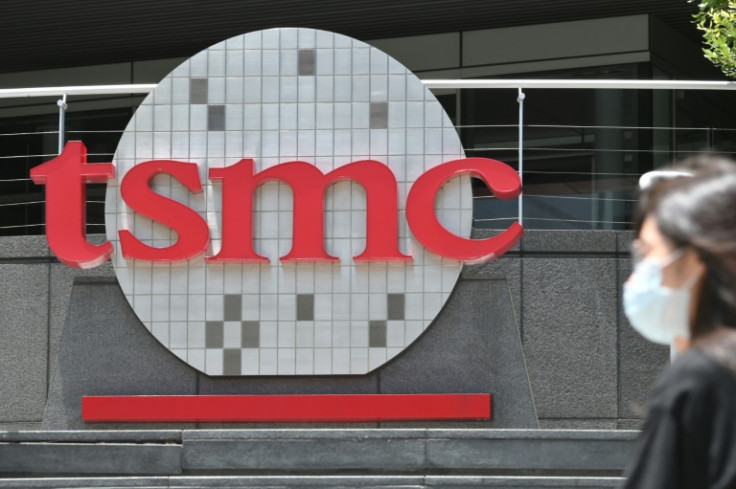TSMC Applies For 'Permanent' Permit To Export US Equipment To China Factory

Taiwanese semiconductor giant TSMC said Friday it has applied for -- and expects to receive -- permanent authorisation from Washington to allow the export of US chip-making equipment to its China-based factory.
Taiwan Semiconductor Manufacturing Company, the world's largest contract producer of computer chips, was among the firms that received waivers last year when Washington imposed sweeping export restrictions to prevent China from getting advanced semiconductor technology.
The United States says the restrictions are necessary to prevent Chinese advances in cutting-edge computing tech, describing them as a national security threat.
But they have sparked concerns among the world's largest chipmakers about the future of their operations in China.
After South Korea announced Monday its chip giants had received the US green light to send equipment to China, attention turned to the Taiwanese firm.
"TSMC has been authorized to continue (to) operate in Nanjing and we are currently in the process of applying for a permanent authorization for our operations in China," it told AFP in an email Friday.
It added that the firm was advised by the Bureau of Industry and Security -- an agency under the US Department of Commerce -- to apply for a "Validated End-User (VEU)" authorisation.
This "would serve as a permanent authorization", TSMC said, adding that they have not had to apply for it in the past.
"We expect to receive a permanent authorization through the VEU process."
If TSMC's factory in Nanjing is designated as a "verified end user", it would eliminate the need for a separate export approval process.
Taiwan's Economic Affairs Minister Wang Mei-hua said earlier in the day that TSMC had "received a waiver extension from the United States".
South Korea -- home to tech giant Samsung and its smaller rival SK Hynix, both of whom had last year received waivers -- announced this week that the US government had designated the companies' factories as "verified end users".
That decision meant the "most significant trade issue of our semiconductor companies has been resolved", said Choi Sang-mok, senior presidential secretary for economic affairs.
It had "significantly alleviated companies' uncertainties over their assembly lines in China", he told reporters on Monday.
Semiconductors have become a flashpoint issue between the United States and China, which are locked in a fierce battle over access to chip-making technology and supplies.
Self-ruled Taiwan is the home to some of the world's most advanced companies designing and producing ever-smaller microchips -- with TSMC as a key leader of the industry.
China claims Taiwan as its territory, and its ramped-up military pressures against Taipei in recent years -- as well as the ongoing Beijing-Washington tech tussle -- has chipmaking firms on the island walking a tightrope between business and geopolitical issues.
© Copyright AFP 2025. All rights reserved.





















